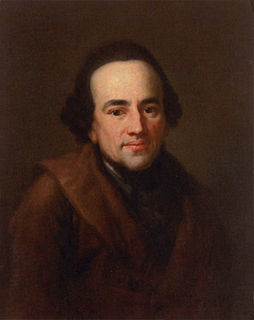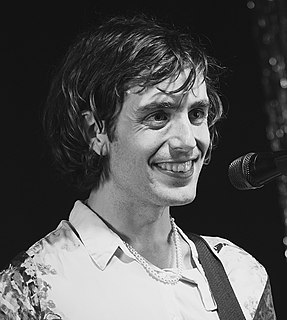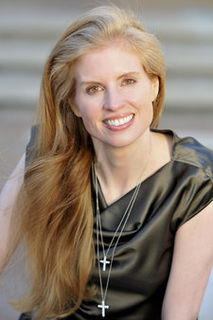A Quote by Geraldine Brooks
You can't write about the past and ignore religion. It was such a fundamental, mind-shaping, driving force for pre-modern societies. I'm very interested in what religion does to us - its capacity to create love and empathy or hatred and violence.
Related Quotes
Religion in the West has a very wrong connotation. It has almost reached to a point where the very word 'religion' creates a repulsion, where the very word 'religion' reminds one of dead churches and dead priests. It reminds one of serious looking people, long faces. It has lost the capacity to dance, to sing, to celebrate. And when a religion has lost the capacity to dance, to celebrate, to sing, to love, just to be, then it is no more religion - it is a corpse, it is theology. Theology is dead religion.
A man who is convinced of the truth of his religion is indeed never tolerant. At the least, he is to feel pity for the adherent of another religion but usually it does not stop there. The faithful adherent of a religion will try first of all to convince those that believe in another religion and usually he goes on to hatred if he is not successful. However, hatred then leads to persecution when the might of the majority is behind it.
Acceptance without proof is the fundamental characteristic of religion. Rejection without proof is the fundamental characteristic of science. In other words, religion has become a matter of the heart and science has become a matter of the mind. This regrettable state of affairs does not reflect the fact that physiologically , one cannot exist without the other. Mind and heart are only different aspects of us.
Instead of loving a God, we love each other. Instead of the religion of the sky-the religion of this world-the religion of the family-the love of husband for wife, of wife for husband-the love of all for children. So that now the real religion is: Let us live for each other; let us live for this world without regard for the past and without fear for the future. Let us use our faculties and our powers for the benefit of ourselves and others, knowing that if there be another world, the same philosophy that gives us joy here will make us happy there.
Religion is a complex and often contradictory force in our world. It fosters hope and comfort but also doubt and guilt. It creates both community and exclusion. It brings societies together around shared belief and tears them apart through war. However, what unites the faithful, whatever their religion, is the unshakeable force of generosity.
Religion should unite all hearts and cause wars and disputes to vanish from the face of the earth; it should give birth to spirituality, and bring light and life to every soul. If religion becomes a cause of dislike, hatred and division, it would be better to be without it... Any religion which is not a cause of love and unity is no religion.
The knowledge exists by which universal happiness can be secured; the chief obstacle to its utilization for that purpose is the teaching of religion. Religion prevents our children from having a rational education; religion prevents us from removing the fundamental causes of war; religion prevents us from teaching the ethic of scientific cooperation in place of the old fierce doctrines of sin and punishment. It is possible that mankind is on the threshold of a golden age; but, if so, it will be necessary first to slay the dragon that guards the door, and this dragon is religion.
I'm not criticizing how people experience what they might call spirituality. I am interested in looking critically at something else - at how people use their language to articulate theories about something they call religion, to say, for example, that "in Islam religion and politics necessarily go together," or to insist that "violence has no place in religion," to universalize it.
The incipient magician will confess his faith to a universal religion. He will find out that every religion has good points as well as bad ones. He will therefore keep the best of it for himself and ignore the weak points, which does not necessarily mean that he must profess a religion, but he shall express awe to each for of worship, for each religion has its proper principle of God, whether the point in question be Christianity, Buddhism, Islam or any other kind of religion.







































